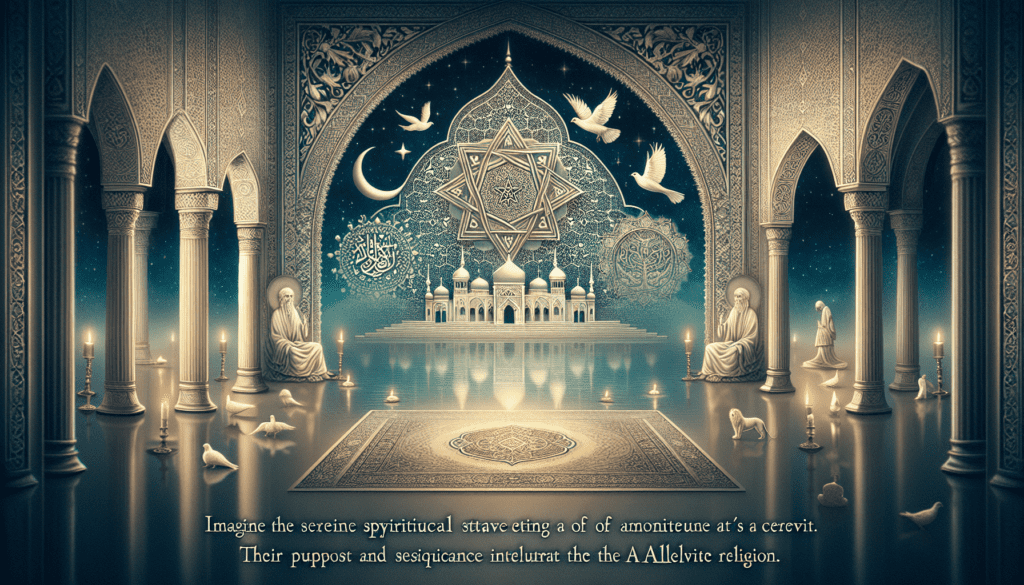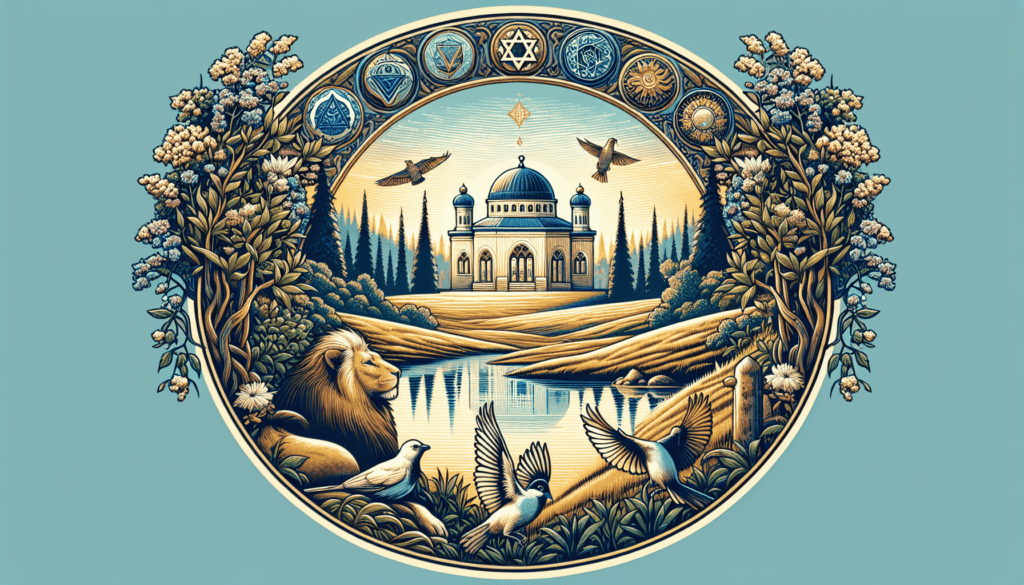Recognizing Alevism’s profound spiritual dimensions and cultural implications is not an easy task. The “Master of Alevite Religion (MA in Alevite Religion)” course offers you a unique opportunity to gain comprehensive insights into the time-honoured beliefs, practices, and rituals of Alevism. This program gives you an in-depth understanding of a faith that has faced influential shifts, allowing you to develop a comprehensive perspective on cultural dynamics, religious freedoms, and the power of spiritual identity in shaping societies.
Overview of Alevite Religion
The Alevite Religion, a branch of Islam heavily influenced by Anatolian folk traditions, Shi’ite elements, and Sufism, has a rich and tumultuous history. Grappling with doubts and ambiguities concerning its origins and development, it has nevertheless persisted as a unique and vibrant faith.
Origin and History of Alevite Religion
The start of Alevism is tied to the Shiite sect of Islam dating back to the 7th century when Ali, the cousin and son-in-law of Prophet Muhammad, was denied the caliphate by Sunnis. Despite this interesting foundation, it wasn’t formally established as a religion until several centuries later. While the exact historical details remain debated, it is generally agreed that Alevism grew concurrently with various historical, social, and political developments in the Middle East, notably in Turkey.
Beliefs and Teachings of Alevite Religion
Alevites follow a unique system of beliefs and practices that sets them apart from other Islamic sects. Notably, their religious ceremonies ‘cem’ don’t take place in mosques but in cemevis. Their beliefs revolve around love and respect for all humans, nature, and God. One of the notable aspects of Alevite beliefs includes the concept of ‘Four Doors’, a spiritual journey and moral code that guides followers in their path to God. Moreover, Alevites place great importance on community harmony, valuing peace, and unity.
Influence and Spread of Alevite Religion
The Alevite religion has a significant footprint, particularly in Turkey, where the community is estimated to be around 15 million. Besides Turkey, Alevite communities exist in neighbouring countries and in the diaspora. Despite enduring periods of persecution and marginalization, the Alevite faith and community have shown remarkable resilience, preserving their distinctive religious and cultural practices across generations.
Importance of Alevite Scholars
The Alevite scholars, known as Dedes, play an invaluable role in maintaining and propagating Alevite religious traditions. They are the guides and leaders of the Alevite community.
Role and Responsibilities of Alevite Scholars
Alevite Dedes take on an array of religious and social responsibilities. They lead religious rituals, provide spiritual guidance to community members, and adjudicate in social disputes. Furthermore, they play a crucial role in preserving and passing on Alevite traditions, teachings, and values to future generations.
Education and Training of Alevite Scholars
Becoming an Alevite Dede entails rigorous spiritual and intellectual training. This includes comprehensive understanding of the Qur’an, divinity, Sufi teachings, Alevite-originated texts, and languages such as Arabic, Persian, and Ottoman Turkish. Such knowledge is often passed down within families with a lineage of Dedes.
Contribution of Alevite Scholars to the Community
Alevite scholars contribute significantly to the preservation, understanding and practice of the Alevite tradition. Their knowledge and wisdom help the community address spiritual, moral and societal concerns while fostering unity and continuity.

Qualifications for Becoming a Master of Alevite Religion
Becoming a master in Alevite religion requires a deep understanding of the Alevite faith, its principles, and practices, along with a strong academic background and community experience.
Academic Background and Knowledge
An academic foundation is essential for aspiring masters of Alevite Religion. A thorough understanding of Alevite-focused studies, along with broader Islamic studies, philosophy, and comparative religions, demonstrates a strong theoretical base.
Understanding of Alevite Beliefs and Practices
Beyond academic foundation, a deep personal understanding of Alevite beliefs and practices is critical. This understanding comes from lived experience, participation in community rituals, and practical application of tenets and principles.
Experience in Alevite Community and Rituals
A considerable amount of time spent in the Alevite community and involvement in Alevite rituals is also a fundamental prerequisite for becoming a master in Alevite Religion.
Master’s Degree Program in Alevite Religion
A Master’s program in Alevite Religion builds on previous foundational knowledge, providing advanced academic and practical training for future scholars and leaders.
Curriculum and Coursework
Such an academic program offers a mix of theological, philosophical and cultural studies. It looks into the in-depth study of Alevite-specific texts, rituals, and practices, and examines their relevance and application to modern life.
Research and Dissertation
A research dissertation forms an essential building block of this program. It offers the scholar an opportunity to delve deeply into a specific aspect of Alevite beliefs, practices or history, contributing to the body of knowledge about this unique religion.
Practical Training and Fieldwork
The Alevite Masters degree also includes a significant component of practical training and fieldwork. Scholars interact with the community, counselling them and leading religious rituals under the guidance of an experienced mentor.

Career Opportunities for Alevite Scholars
Upon completion of their Masters in Alevite Religion, scholars have a variety of career paths open to them.
Religious Leadership and Guidance
Many opt to work within their communities, providing religious leadership and spiritual guidance. They may serve as religious leaders, educators, or spiritual advisors.
Teaching and Academia
Others may choose to remain in academia, continuing to research and teach about Alevite religion at universities. They help broaden understanding of Alevite traditions and beliefs, influencing the next generation of scholars.
Community Development and Advocacy
Increasingly, Alevite scholars are also involved in community development and advocacy. They help address societal challenges facing the Alevite community, advocating for their rights and helping preserve their unique culture and traditions.
Challenges Faced by Alevite Scholars
Despite their significant role, Alevite scholars continue to face several challenges, which even get exacerbated due to political, social, and religious tensions.
Persecution and Discrimination
As most Alevis reside in predominantly Sunni nations, they often face persecution and discrimination. Alevite scholars, as community leaders and representatives, bear the brunt of these challenges.
Preserving and Promoting Alevite Identity
Preserving Alevite history and traditions in a rapidly modernizing world is a significant challenge. Scholars need to find a balance between maintaining traditions and adapting to a changing world.
Maintaining Unity within Alevite Community
Given the diverse interpretations and practices within the Alevite community itself, maintaining unity is another issue that Alevite scholars often have to deal with.
Notable Masters of Alevite Religion
There have been several exceptional Alevite scholars who have played pivotal roles in shaping Alevite thought and practice.
Prominent Figures in Alevite History
Historically, figures like Haji Bektash Veli, a 13th-century mystic and philosopher, has contributed considerably to Alevite thought and tradition.
Modern-Day Alevite Scholars and Leaders
In recent times, scholars like Dr. Mehmet Bekaroğlu and Professor Hasan Kılavuz have made valuable contributions to understanding and interpreting Alevite beliefs and practices.
Their Contributions and Impact
These scholars have played an essential role in preserving and adapting Alevite tradition to contemporary times. Their works serve as a source of wisdom and guidance for Alevites worldwide.
Pursuing a Master of Alevite Religion
If you are considering becoming an Alevite scholar, there are several steps you need to take.
Finding Accredited Programs and Institutes
The first step is discovering accredited institutes that provide a Master’s degree in Alevite religion. These programs should provide comprehensive academic coursework and practical fieldwork opportunities.
Application and Admission Requirements
Before admission, you will need to meet certain criteria, including a strong academic background, preferably in relevant fields like theology, comparative religion, or Middle Eastern studies. In addition, a firm understanding of Alevite culture and values is essential.
Financial Aid and Scholarships
Institutions often offer financial aid and scholarships to eligible students. This financial assistance can make the degree more accessible for many aspiring Alevite scholars.
Future Prospects and Scope of Alevite Religion
Alevite religion continues to evolve and adapt to contemporary circumstances, indicating promising future prospects.
Growth and Globalization of Alevite Community
With the increasing diaspora and globalization of the Alevite community, there is a growing need for educated Alevite scholars who can guide the community in foreign lands.
Evolution of Alevite Beliefs and Practices
Alevite beliefs and practices continually evolve, providing scholars ample opportunities for exploration, research, and contribution.
Challenges and Opportunities Ahead
While maintaining unity within the Alevite community and preserving traditions are significant challenges, they also represent opportunities for scholars to make a substantial impact.
Conclusion
Implications of Master of Alevite Religion Degree
Completing a Master’s degree in Alevite religion equips you with the necessary knowledge and skills to be a leader and guide in the Alevite community.
Role of Alevite Scholars in the Modern World
In a rapidly changing world, Alevite scholars play a pivotal role in preserving Alevite traditions while helping the community adapt to current challenges and changes.
The Continuing Significance of Alevite Religion
Despite the complexities and challenges it faces, Alevite religion retains its unique significance. Its teachings and practices, imbued with values of peace, love and respect, continue to guide millions in their spiritual journeys.

